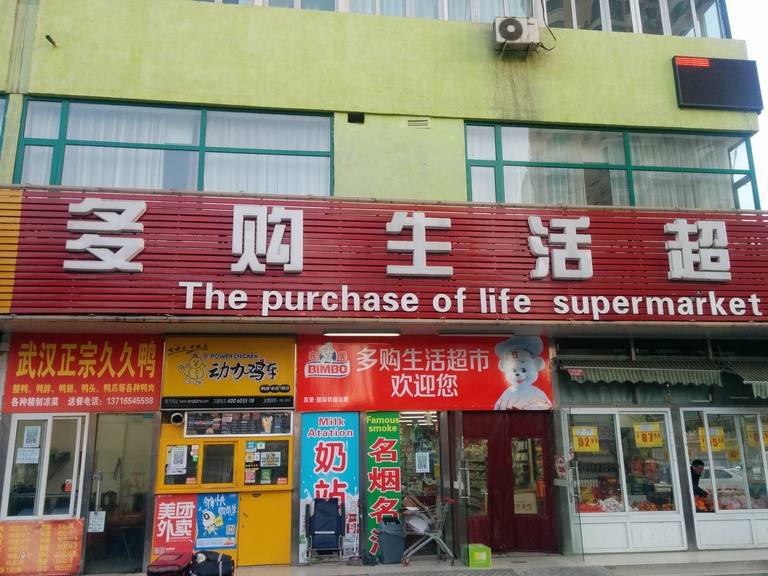By Jeffrey Ding*

How can anyone ignore a chance to buy more life?
In Iowa City, a trip to the other side of town is a leisurely 15-minute drive. In Beijing, the journey from the dorms of Peking University (in the northwest corner of the city) to Jiuxian Condominiums near my internship location (in the northeast corner) takes nearly 90 minutes.
Moving but remaining in the same city is a weird experience. My old haunting spots – the café with the mushroom soup, the bar with the dilapidated pool table – are too far away to revisit with the same frequency. The day before my first day at B&D law firm, I jogged around the neighborhood, scouting out new roosts.
There was a sunflower seed dehuller machine outside a nearby convenience store that smelled so good I circled back around, another chain of my favorite dumpling restaurant across the street, and a McDonald’s within midnight-snack walking distance. Near the end of my run, a supermarket advertising itself as “The purchase of life” supermarket caught my eye.
How can anyone ignore a chance to buy more life?
If translated more rigorously, the store’s Chinese name – duogou shenghuo chaoshi - means “buy more lifestyle market.” It is a difficult phrase to translate to English; shenghuo is one of those Chinese words that could function as a noun (life) or a verb (to live) or a closely related yet different word (livelihood). But I choose to believe that this was not a translation mistake; instead, I think that the owners took advantage of an opportunity to rebrand their store as a place where one could purchase life.
Though less ambitious, other businesses have found opportunity in translation. Nike is naike (“Durable and Enduring”). Uber is youbu (“Excellent Step Forward”). Other names are more difficult to translate, but some companies have proved that creativity comes from stricter constraints. McDonald’s is maidanglao , which gets phonetically close to the original, conveys the company’s main function (mai means wheat in Chinese), and also adds a layer of virtuous, rustic messaging with Chinese characteristics (the full Chinese name says, “wheat requires hard work”). Mcdonald’s is trying to convince Chinese people that fast food can be a reward for their daily toil. The strategy is working. The fast food chain is ubiquitous in China and holds a 16 percent market share, second only to KFC.[i]
Companies like McDonald’s have painted their Chinese translations with broad brushstrokes, seeking to tap into the culture’s tendency to prefer brands that communicate auspicious sentiments or family values, in contrast to many American companies named after an individual. For instance, the oldest brand selling Peking Duck in China, quanjude, translates as “Everyone with virtue gathers together.” It’s a precarious balancing act: companies have to maintain their core as they adjust to a new culture. In a sense, multinational companies are constantly studying abroad.
Since David Bowie died, I’ve been thinking a lot about self-branding. He was constantly reinventing himself into personas ranging from an alien rock star to an insane lad. We reinvent ourselves in less explicit but equally significant ways. In cropping and filtering our social media platforms, we also project avatars of ourselves, seeking to polish our brand for the world to see.
As I start my internship abroad, I’ll also have to rebrand myself into a bilingual intern who can thrive in the global workplace. Sweatpants will turn into corduroys, and I will have to translate my language skills into work deliverables. Rebranding oneself gives off a negative connotation because it implies the commoditization of the human self, but the process actually allows for a spontaneous exploration of different sides of your self. And study abroad is a perfect opportunity to translate oneself in a foreign country, in a strange language, in unfamiliar roosts. You may just discover a way to add another layer of meaning to your brand. No, despite what the Chinese supermarket said, you can’t actually buy life.
But maybe you can rebrand it.
*Jeffrey Ding is a senior from Iowa City, Iowa, studying political science, economics, and Asian languages and literatures at the University of Iowa. He spent last fall in Beijing, China, on the CIEE Advanced Chinese Studies program and continues to live there this semester as he pursues an internship funded by a Boren Scholarship.